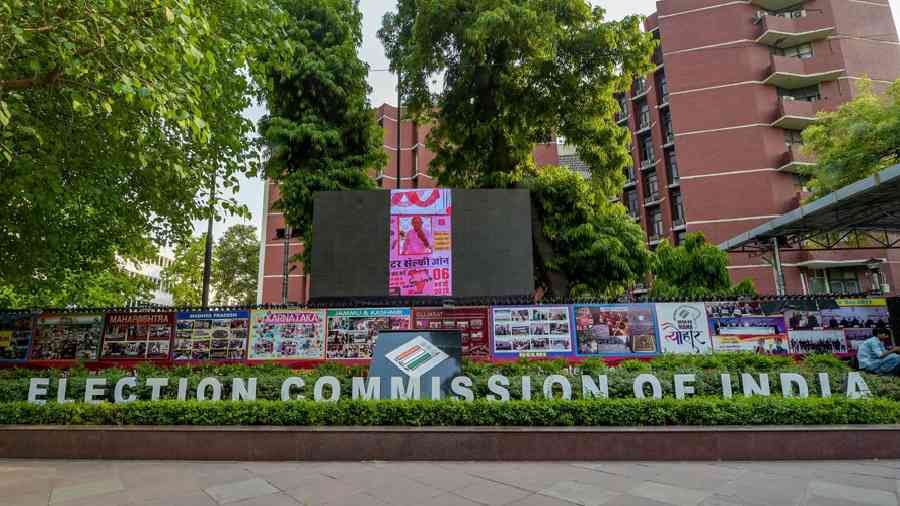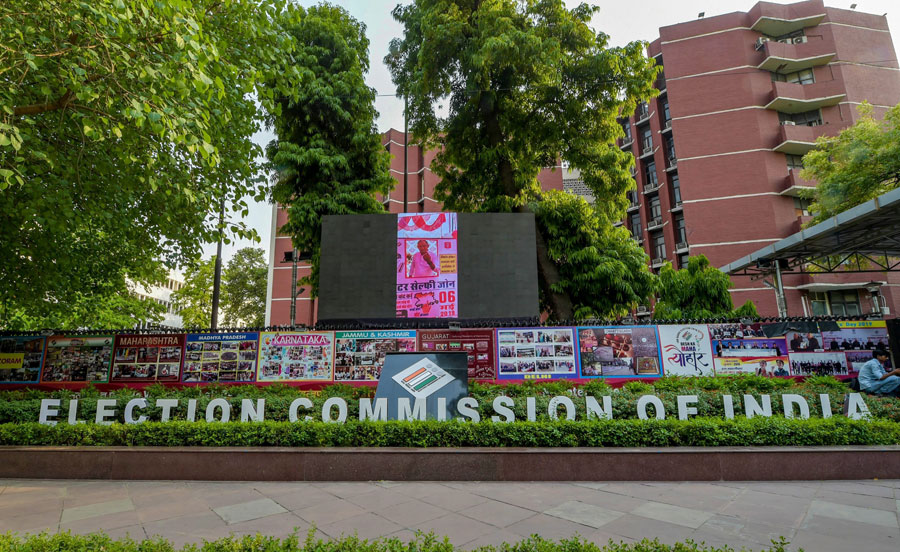The Election Commission of India on Tuesday sought national and state parties’ views on the inclusion of a pro forma in the Model Code of Conduct for parties to explain the fiscal rationale behind the promises they make in their manifestos.
The commission’s push comes days after it expressed its inability in the Supreme Court to regulate the “freebies” offered by political parties.
Citing its role as an impartial constitutional body tasked with conducting elections, the commission has stayed out of an expert committee formed by the apex court to decide the fate of “freebies”.
In a letter to the parties, the poll panel said: “It is imperative that guidelines, issued
on the direction of the Hon’ble Supreme Court in S. Subramaniam Balaji vs State of
Tamil Nadu & Ors, on 24.04.2015 and forming part of the MCC (Model Code of Conduct) are followed by the political parties in letter and spirit.
“The commission has come to the conclusion that a prescribed format for disclosure by political parties on the promises made by them in their election manifestos is necessary to bring standardisation in the nature of information and facilitating comparability.”
The MCC is not a law, and any violations are penalised under the poll panel’s discretionary powers. The commission wants to add the pro forma under sub-para 3(iii) of Part VIII (Guidelines on election manifesto). The parties have been asked to respond by October 19.
The pro forma records the following details relating to any poll promise with financial implications: extent and expanse of coverage, quantification of physical coverage, quantification of financial implications of the promise, availability of the financial resources, ways and means of raising resources for meeting the additional expenditure to be incurred in fulfilling the promises, and the impact of the additional resource-raising plan on the fiscal sustainability of the state or the Centre.
A poll panel source said: “The chief secretaries and the Union finance secretary will also be required to give fiscal information based on the latest budget estimates or revised estimates in the year of the general election. Parties will have to report against these fiscal parameters, facilitating standardisation and comparability.”
In 2015, the poll panel had included guidelines in the MCC that called for a “level playing field and credibility of promises” and said “it is expected that manifestos also reflect the rationale for the promises and broadly indicate the ways and means to meet the financial requirements”.
In 2019, parties were prevented from releasing their manifestos during the silence period of 48 hours before the close of polling.
The source added: “While the commission is agnostic about the nature of the promises, the need to frame disclosure requirements to enable a healthy debate on the financial implications of implementing those promises, both in the immediate future and for the long-term fiscal sustainability, is imperative for facilitating the conduct of free and fair elections.”


